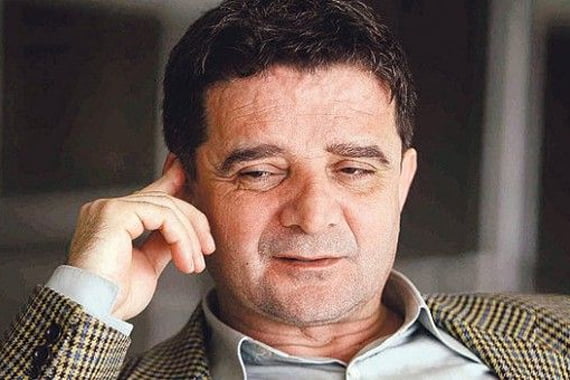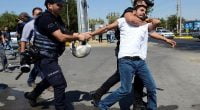The anti-thesis of radical Islam

Date posted: March 10, 2014
MÜMTAZER TÜRKÖNE
Saudi Arabia’s move, accompanied by Bahrain and the United Arab Emirates (UAE), to withdraw ambassadors from Qatar is one of the important indicators of how the Arab Spring has started to be given a different twist. Qatar is accused of lending support to radical Islamist groups. In the same vein, the Muslim Brotherhood (MB) was listed as a terrorist organization. Given the fact that Saudi Arabia was one of the main sponsors of the coup d’état in Egypt, it is clear that the Arab Spring process has been reversed.
There is a paradox. This profound turbulence engulfing the Muslim world is the result of competition among petty ruling elites. The Middle East’s deeply fragmented oligarchic administrations compete with each other in a small geography, and the winner is entitled to determine the fate of Muslim societies. At the end of these personal competitions, Iran emerges as a decisive factor and the Islamist organizations that resort to violence find extra room for maneuvering.
Internal conflicts in the Muslim world are very profound and multi-layered. The conflict between modernity and tradition no longer applies. Tradition is here only to give legitimacy to monarchies or ruling cliques. As the political interpretation of Islam makes up all programs that seek to seize power, numerous groups — ranging from those that adopt democratic methods to those who stick to monarchies — become parties of the power competition. There is also a very powerful civil Islamic tradition that shies away from this harsh struggle for power. The severe competition in the political sphere is urging this civil sphere to become politicized.
This civil tradition is stronger than is generally thought. Religious communities and orders that organize easily represent this sphere, and they offer a protected zone for society. As they are well aware of the decadent nature of politics, they keep their relations with the political power and other political actors at a minimum. They try to maintain their autonomy by wielding their mass membership as a trump card against the political power. The MB is a civil/political movement that is poised in between. When the Arab Spring first started, the MB was considerably hesitant about entering elections. Even this matter led to divisions within the organization. If they hadn’t entered the election, Egypt might have avoided the problems in its transition to democracy.
In my final analysis, radical Islam starts to rise when Islam’s democratic methods fail in the face of monarchies and dictatorships. Because of this recurring mistake in the Middle East, we have seen the rise of al-Qaeda, al-Nusra, the Islamic State of Iraq and al-Sham (ISIS) and similar organizations.
Turkey’s ability to stay outside of this turmoil is attributed to the performance of civil Islam. The ruling Justice and Development Party (AK Party) became popular as an effective implementation of democratic political Islam. However, as it came from a tradition of political Islam, it wasn’t able to escape the trap of creating a monopoly of political power. The only force that can resist the AK Party prime minister, Recep Tayyip Erdoğan, and that can limit his power is civil Islam. The Hizmet movement is Turkey’s strongest civil Islamic movement, and it can employ social dynamics to resist the AK Party. The race for the local polls slated for March 30 is between the AK Party and the Hizmet movement, not between the AK Party and other political parties.
This picture alone is proof that the political Islam experience has failed in Turkey. The sphere of civil Islam, where basic democratic rights are safeguarded by laws, emerges as the only anti-thesis for the rising radical Islamic movements around the Muslim world. Turkey should be closely monitored as a good example of this experience.
Source: Todays Zaman , March 10, 2014
Tags: Hizmet (Gulen) movement | Islamic World | Turkey |
























